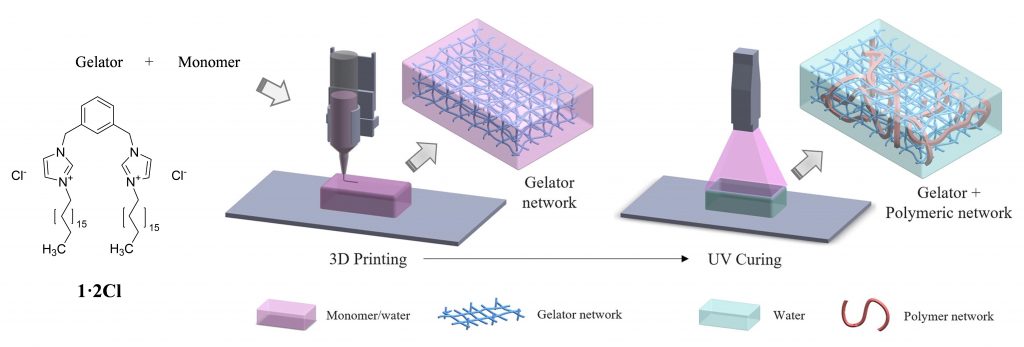The variety of UV-curable monomers for 3D printing is limited by a requirement for rapid curing after each sweep depositing a layer. Here, researchers used the gemini imidazolium-based low-molecular-weight gelator 1·2Cl during extrusion-based 3D printing. The self-assembled supramolecular fibers provide structural support immobilizing the monomer in water. After UV curing, a hybrid, physically interpenetrated polymeric-and-supramolecular network is formed. The resulting thixotropic hydrogels showed recovery times <50 s, excellent inter- and intra-layered isotropy, and 62-147% increase in tensile properties compared to layer-by-layer cured hydrogels. This study, developed by researchers from the University of Nottingham and Supramolecular Systems in Nanobiomedicine demonstrates the benefits of using gelators to expand the variety of 3D printable monomers and improve the mechanical properties of the resulting hydrogels.
An imidazolium-based supramolecular gelator enhancing interlayer adhesion in 3D printed dual network hydrogels. Zhou Z., Samperi M., Santu L., Dizon G., Aboarkaba S., Limón D., Tuck C., Pérez-García L., Irvine D.J., Amabilino D.B., Wildman R. Materials & Design. Volume 206, August 2021, 109792.

